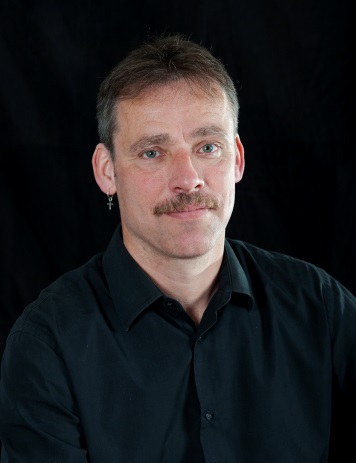 Large-scale methane measurements on individual ruminants for genetic evaluations
Large-scale methane measurements on individual ruminants for genetic evaluations
Jan Dijkstra

Tell us about yourself (Who are you? Where are you from? What is your educational background?)
I am Jan Dijkstra, Associate Professor at the Animal Nutrition Group, Wageningen University (the Netherlands) and Adjunct Professor at the Department of Animal and Poultry Science, University of Guelph (Canada). My major MSc thesis was in Animal Breeding and Genetics (1987) and my PhD was on ‘Mathematical Modelling and Integration of Rumen Fermentation Processes’ (1993), both at Wageningen University. After completing my PhD studies, I worked as a post-doctoral researcher at the Biomathematics Group, Institute of Grassland and Environmental Research, North Wyke (United Kingdom) (1993-1997). Since then I have been working at Wageningen University.
What is your area of expertise?
I have a background in modelling digestive and metabolic processes in farm animals, particularly dairy cattle. My research has shown the importance of the interplay between modelling and experimental research in animal nutrition, and this interplay (which I find exciting and stimulating!) is my major area of expertise.
Keywords include: Ruminant nutrition; Rumen fermentation; Modelling; Feed evaluation; Nitrogen metabolism; Phosphorus metabolism; Enteric methane.
Where does your focus lie within your current project(s)? (related to methane)
- My focus is on modelling enteric fermentation processes and measuring methane production in climate respiration chambers.
- The research I have been involved in has shown the importance of high-quality roughage to improve feed efficiency and reduce methane emissions.
- We actively investigate possibilities of milk biomarkers (fatty acids and several other metabolites) as indicators of methane production.
- The models of enteric methane production in dairy cattle we have developed are now actually used as official Tier 3 method in the Netherlands in the national inventories. And it does make quite a difference compared to using a Tier 2 method.
- With the data and models, I contributed to LCA analyses, also with a view to identify possible trade-offs of methane mitigation.
What would be the added value for you of joining an international researchers network? (such as the METHAGENE network)
- To collaborate in larger studies and explore / develop opportunities for new (international) projects
- To learn about recent developments
- To meet other scientists and exchange ideas
- To contribute (from my quantitative expertise) to development of concepts and applications to reduce enteric methane production
What and/or who inspired you to make a career in science?
Curiosity and cows. Converting human-inedible feed into high quality products - wonderful and impressive.
What do you enjoy most about your work?
To better understand the complex processes within the animal and the interaction with outside influences. And, as lecturer, to challenge and stimulate students to be positively critical and make a difference.
What is your most stand-out or surprising moment in science so far?
Many surprises...! Perhaps the most surprising one, personally, was that I discovered (during my PhD) that a general, simple concept of microbial-co-existence in complex ecosystems described in literature, was highly relevant to enable protozoa, fibrolytic and amylolytic bacteria in my model of rumen fermentation to ‘virtually’ survive and co-exist. Still pretty proud of the resulting paper in Brit J Nutr.


